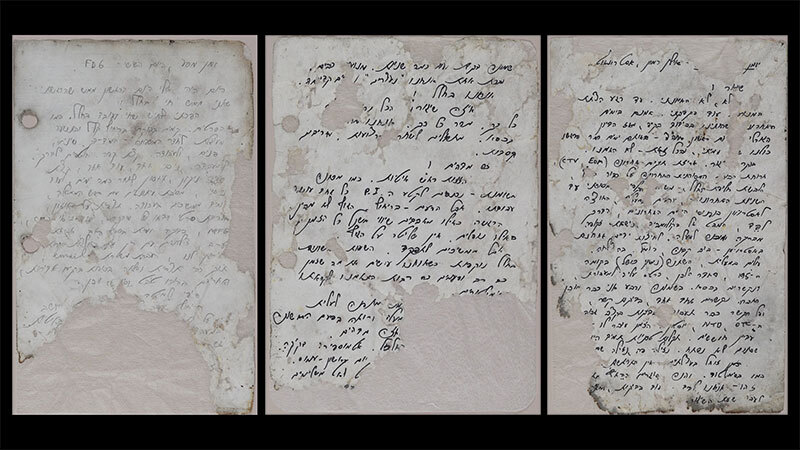31.05.2024

The recovered pages from STS-107 astronaut Ilan Ramon's space-flown diary have been transferred to the National Library of Israel in Jerusalem. (National Library of Israel/NASA)
The handwritten journal pages of Israel's first astronaut have been added to the country's national library in Jerusalem, more than 20 years after they were found among the debris from the NASA tragedy that claimed his life.
Ilan Ramon wrote most of the diary while he was in orbit aboard the space shuttle Columbia, serving as an STS-107 payload specialist on the winged spacecraft's last, ill-fated flight. The found pages document Ramon's day-to-day life in space, from his hygiene routine to the research he performed on behalf of NASA and his home nation.
Also included were his notes on the Jewish practices that he was to demonstrate from high above Earth.
"Identified among the restored pages was the Friday night blessing over wine, with Ramon's annotations. Apparently aware he was to broadcast the 'Kiddush' live from space, Ramon wanted to make sure he did not forget a single word," read a release issued by the National Library of Israel on Wednesday (May 29).
After 16 days circling the planet, Ramon and his six STS-107 crewmates were lost on the morning of Feb. 1, 2003, when Columbia broke apart during its reentry into Earth's atmosphere. An subsequent investigation found that a segment of foam that had come loose from the shuttle's external fuel tank during launch struck the orbiter's left wing and left a gaping hole in its leading edge.
As the vehicle descended back to Earth, hot plasma flowed through the hole into Columbia, weakening its structural integrity. The stresses of plunging back into the atmosphere tore the shuttle to pieces.
The tattered and stained Ramon diary pages were discovered among the 84,000 fragments that were spread across East Texas.
"Researchers believe that the lightweight nature of paper allowed the notebook to go into a slow glide, leaving it relatively undamaged, with most of the damage probably occurring after the return to Earth, having landed in a humid, swampy area," read the National Library of Israel release.
Ramon's other recovered personal effects included a copy of "Moon Landscape," a drawing by Petr Ginz, who was killed at Auschwitz; a small Torah scroll earlier rescued from the Bergen-Belsen concentration camp; and some wine for blessing on the Sabbath. There was also a letter from Ramon's son Assaf (who later as a fighter pilot was killed in a 2009 flight training accident), as well as a notebook that he used to jot down his experience.
The diary was at first taken to the Israel Museum, where the pages were carefully restored and preserved, as aided by the Israel Police's forensic department.
Twenty years later, the document was delivered to the National Library by staff members and Ramon's two sons. The diary was scanned and then placed into a vault with the institution's other rare items. The vault is climate controlled such that the conditions inside are monitored to keep its holdings safe.
"The diary is in good company here in the same room as Isaac Newton and Maimonides, along with Ilan Ramon's letter to Prof. Yeshayahu Leibovitz," Marcela Szekely, head of the conservation laboratory at the National Library of Israel, said in a statement.
Other items held by the library include a copy of the diary kept by NASA astronaut Jeff Hoffman, the first American Jewish man to fly into space. Over the course of his five space shuttle missions between 1985 and 1996, Hoffman flew a number of Jewish items, including a Chanukah dreidel and a small Torah scroll from which he read from the Book of Genesis while in orbit.
According to Szekely, after being further studied and cared for, Ramon's diary will be considered for display, joining the library's permanent exhibits.

Pages from STS-107 astronaut Ilan Ramon's diary that were found amongst the debris from the space shuttle Columbia. (National Library of Israel)
Quelle: CS
